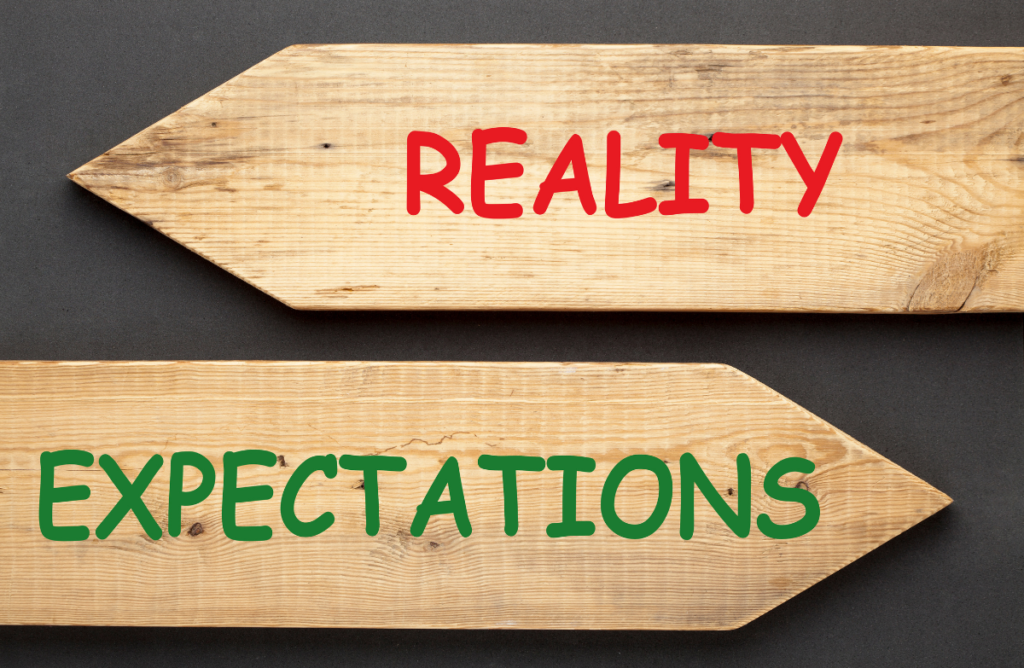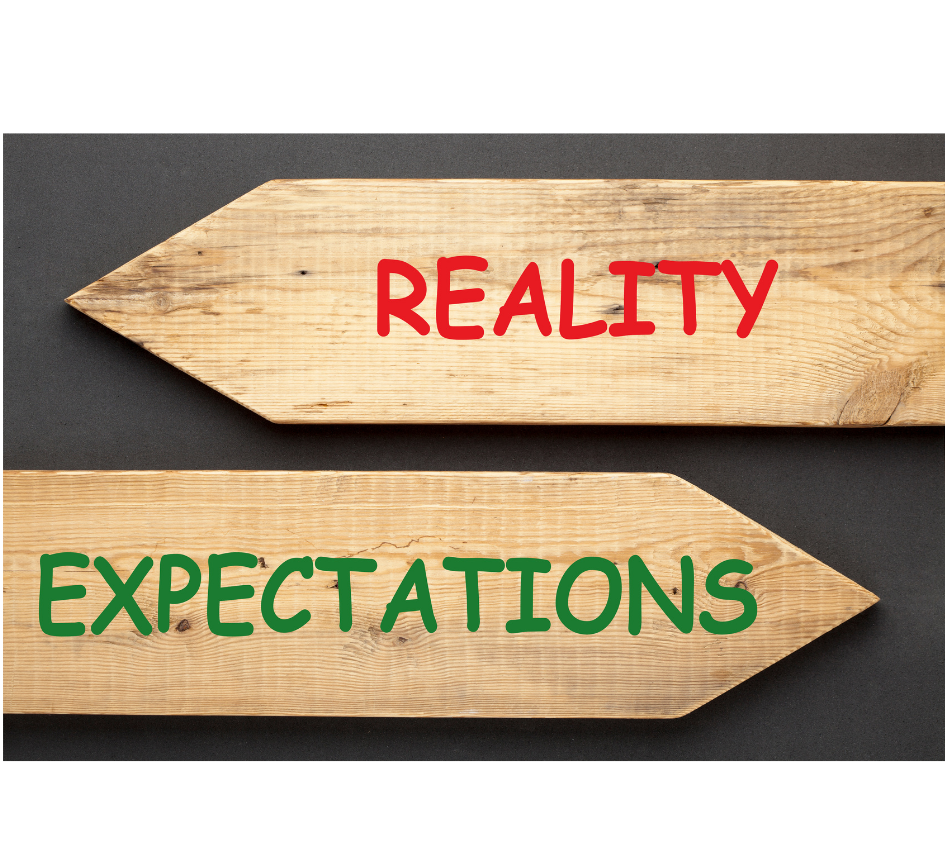By Leigh-Ann Athanasius & Kathleen Kibi

Can you think of a recent situation that frustrated you because you felt that your expectations were not met? In that moment, how would you measure your expectations?
At their core, expectations are the belief that something is going to happen. This is not inherently a bad thing, but it can lead to disappointment depending on how your expectations are handled. We face people’s expectations constantly in the workplace, but can expectations be an objective basis of evaluation? It can be difficult to answer these questions, because expectations, in their most basic form, are weird.

When we were kids, our expectations would be equivalent to magical thinking; an interesting developmental theory that we recommend checking out. Basically, the theory goes that our internal belief will influence and manifest in our external environment. But as we get older, we learn to regulate our expectations; some much better than others.
We have expectations of almost everyone in our lives; friends, families, wait staff at restaurants, our co-workers; but what are expectations based on? Mainly three things; our perspective, our life experience and how society has operated around us.
What do all those three things have in common? You are at the centre but more importantly, no one has lived your life but you. How can you manage your own expectations in a world where everyone else has their own expectations?

In the workplace, the best way to manage expectations is to communicate them. There’s a saying that “expectations are premeditated resentments”. Now this may sound bleak, but left uncommunicated, unmet expectations can fester and create a toxic environment.
Expectations in the workplace should be something real and not something only you are thinking about and hoping for in your own head. They should be communicated not only to give people the chance to meet them, but challenge them where they are unrealistic and exceed them where they have capacity to. We need to keep in mind that expectations are often based on our own personal experiences, so it is weird to expect other people to know what that looks like.
So, whether expectations can be measured and used for evaluation, that’s not something we can answer just yet. But we’ll give it a try in our upcoming posts. They will be centred particularly around the workplace, where we’ll explore client and colleague expectations, employee and employer/organisation expectations and discuss how realistic it is to try and exceed them.
What do you think about expectations? Are they set-ups for disappointment or something that could be useful to verbalize and understand? Let us know and stay tuned for our take.



